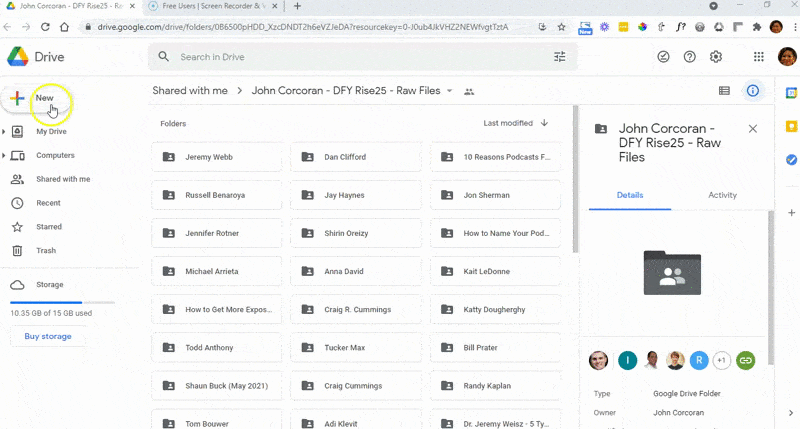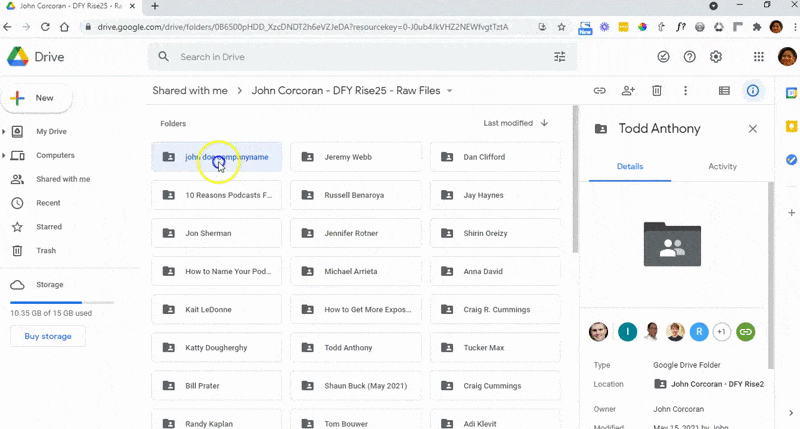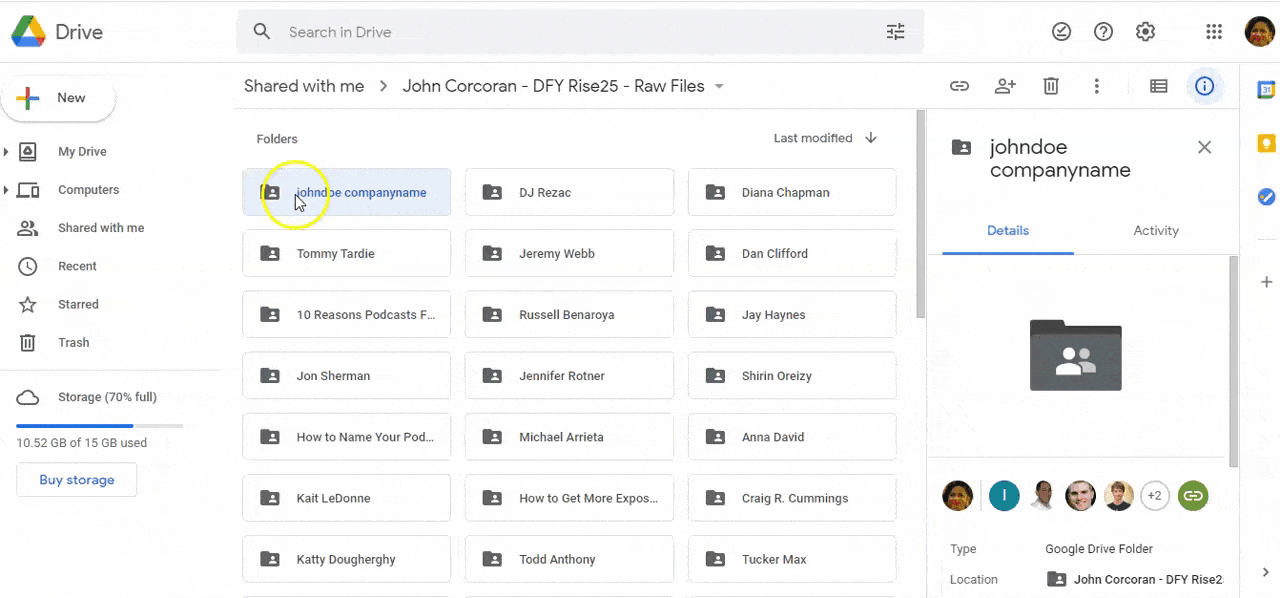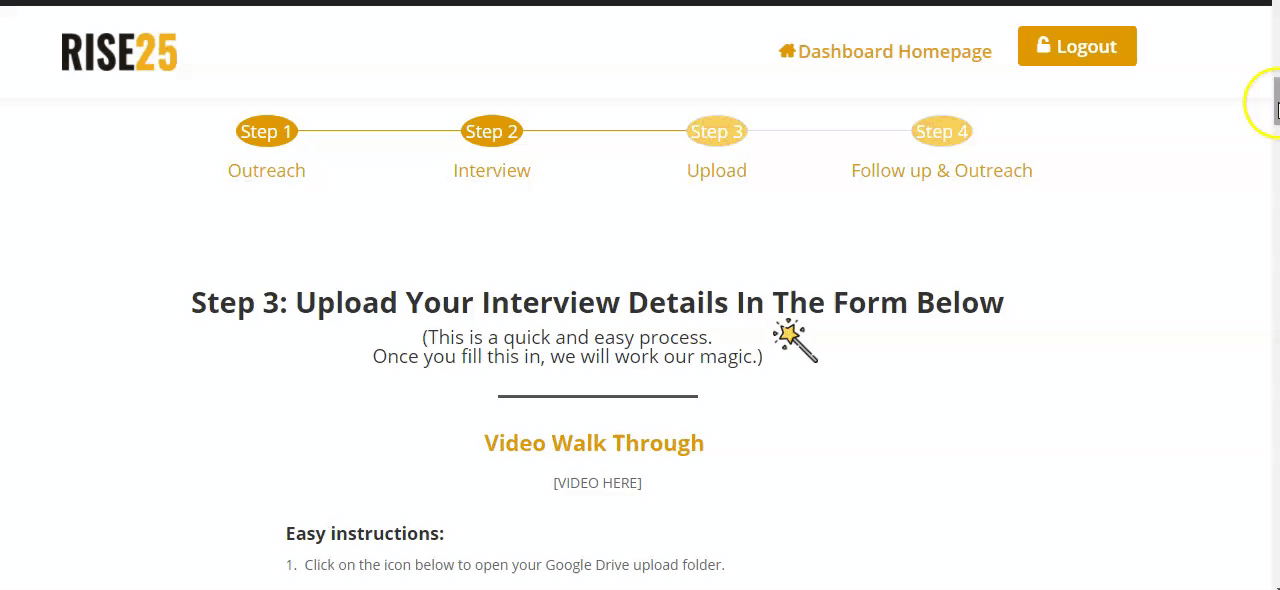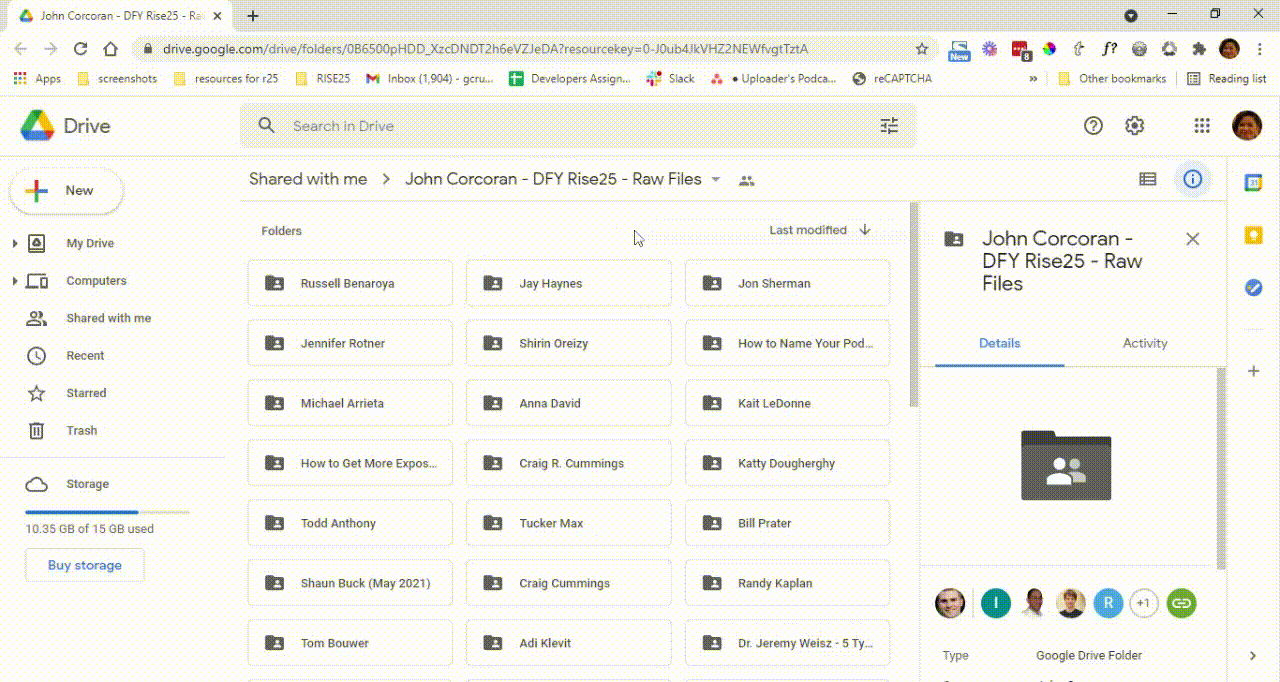The Fundamental Interview Checklist To Make Your Episodes Successful Copy
In the video above, Jeremy gives a detailed walk-through on how you can conduct a rockstar podcast interview from the preparation stage up to the wrap-up stage of the process. Log in to your Rise25 member dashboard and access your Customized Master Interview Template to follow along.
Jeremy gives tips on how to do the pre-interview session properly, explains why shout-outs and mentioning past guests are important, gives sample questions you can use, and shares techniques on how to seamlessly end an interview and wrap up a conversation with a guest.
Other resources related to this topic:
1. Prepare and use your interview template
Before diving into any interview, it’s imperative to use the interview template and checklist. These tools ensure organization, can anticipate guest needs, and streamline the entire process. It sets the tone for a successful episode. One way to enhance preparation is to research your guest. Simply pulling up their LinkedIn profile can provide insights that help establish rapport, build trust, and show genuine interest.
2. Mention past guests during the introduction
The introduction isn’t just about welcoming the guest. Use this time to set the context for listeners and mention past guests. If you’re new to podcasting, discuss the types of guests you plan on hosting. Not only does this establish context, but it’s also a strategy to refine your audience and communicate to potential future guests.
3. Read your sponsorship message live
When discussing sponsorships, read the message live during the episode rather than using a pre-recorded segment to ensure relevancy and catch the attention of both listeners and guests. Live reading provides an opportunity to shape the ongoing conversation and ensures the guest is aware of what you do, enhancing the dynamic of the interview.
4. Give credit during guest introductions
When introducing your guest, credit those who made the introduction, as it adds a personal touch. While you will have pre-planned questions from the pre-interview phase, having fallback questions ensures you’re never caught off-guard. As the interview concludes, ask a final question directing listeners to resources or the guest’s website, adding value for your guest and your audience.
5. Engage with your guest post-interview
The conversation shouldn’t end once the record button is off. Dedicate this time to offering introductions, seeking guest recommendations, and sharing any insights or value you noticed about their work or website. Remember, the aim isn’t to “sell” but to “help”. For everyone mentioned in the episode, make sure to reach out, even if it’s just a simple text or email. This gesture can lead to stronger relationships and more networking opportunities.
6. Actively follow-up
After the episode goes live, reach out to those mentioned during the interview. It keeps the communication channel open, shows appreciation, and can often lead to further collaboration or networking opportunities. Whether it’s a brief acknowledgment or a detailed thank-you note, following up reinforces the bonds you’ve started to forge.
How to conduct an amazing interview not just from the content perspective, but in order to build a lasting relationship:
1. Initial instructions on creating the Google document for each interview
Log in to your Rise25 account to access your membership dashboard. From there, you will find your Customized Master Interview Template.
Make sure to make a copy of this template so you can make individual notes for each guest or every interview.
2. How to rock an interview and research guests
We always tell our clients that a good podcast episode is light in advice but heavy with examples. Help your guests tell great stories by researching them before the interview.
Check the about page of their website or visit their LinkedIn page to familiarize yourself with their background, their company, and what they currently do. If you want to dig deeper, check to see if they have any content on YouTube that you would like to discuss during the interview.
3. How to do a pre-interview with the guest to form the best relationship and create the best content
A pre-interview session is integral to the success of a podcast interview. Tell your guest that you will plan the episode before recording and follow the step-by-step guide under the “Pre-Interview” section in your Customized Master Interview Template.
This entire session should take you no longer than 5 minutes. In summary, you will:
- Ask your guest what time they need to be done.
- Ask your guest what they want to talk about during the interview. This can include anything from case studies to the work they do for their company. Take note of everything they say.
- Explain the format of the interview.
- Read to them the guest introduction you wrote and make sure you pronounce their name correctly.
- Ask if there are any important partners or champions they want to shout-out or mention in the episode.
- Important: Most people forget to hit the ‘Record’ button. Make sure to test your mic and ask the guest to do the same.
4. How to do a live read of your podcast introduction on the podcast and follow up with past guests
Once you’ve hit the record button and tested your mics, read your intro.
Next, be sure to mention past guests you’ve interviewed on your show. People tend to skip this part, but it’s important to recognize previous guests.
Doing so points your listeners to more great content, establishes credibility that you’ve had other great guests on, makes guests feel they are with the right company, and allows you to reach out to past guests.
5. How to read your sponsorship message and the components you need to include
We highly recommend that you use your own business as the sponsor of your podcast to maximize your earning power.
A great sponsorship message must include:
- What your company does or what you do
- Address the guest and involve them in the sponsorship message (could be a case study)
- A call to action
You can also give away a sponsorship message to your champions or best referral partners. Ask them for a short bio before you record an episode and let them know they were mentioned. Make sure to read their company bio after yours. It’s meant to be an additional sponsorship message, not a replacement for yours.
6. The introduction of your guest and the shout-out section
Before reading your guest’s intro, give a shoutout to whoever introduced you, your common friends, or any individual or company you want to mention in this episode.
Next, read your guest’s bio. Always ask them for a 3-4 sentence bio before your meeting date and confirm this with them in the pre-interview session as mentioned earlier.
7. Sample interview questions (Business-Related and Personal)
Remember, you already did the pre-interview session and have at least 5 good bullet points to get the conversation rolling. If you’ve done the pre-interview properly, you have a rockstar plan and flow ready to go.
If you need additional ideas, here are more suggestions:
8. Your final question section and wrap-up
The final question creates great content and resources for your audience.
It can also create warm introductions. If your guest mentions a colleague they look up to, a mentor they’re thankful for, or a favorite tool, you can reach out to these people and share the episode with them. If they respond, you can get the conversation rolling and ask if they would be open to coming on your show.
This final question is a good transition to conclude the interview.
After the interview is done and you’ve ended the recording, go to the How To Handle the Post-interview Collaboration Conversation guide and follow it step-by-step. In summary, you will:
- Offer introductions
- Ask the guest for introductions
- Offer a free assessment/nugget of wisdom
- Reach out to all resources mentioned in the episode
- Send a thank you email to the guest
- Give the guest something of value


